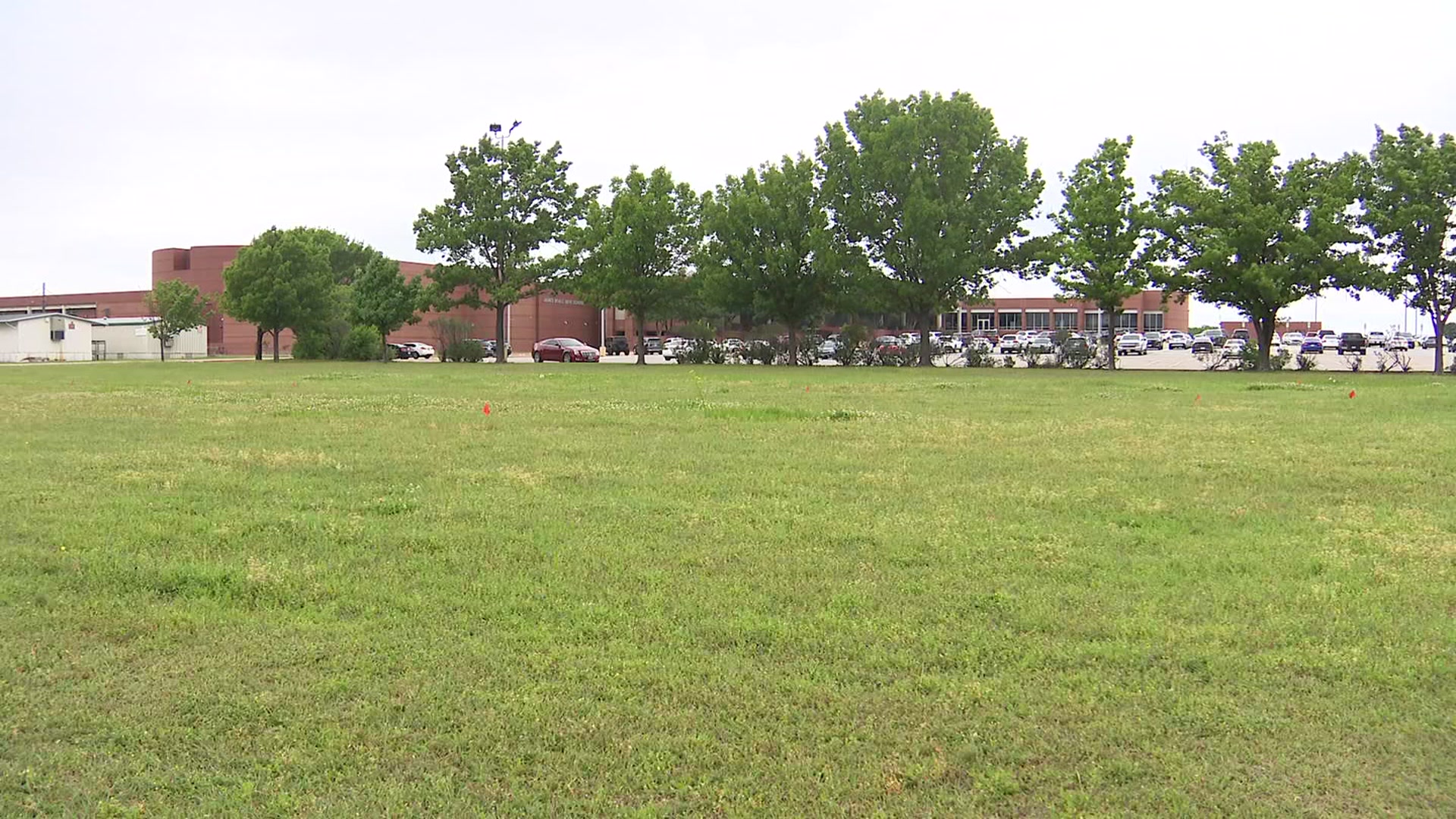Live theater in Houston is starting to look more like the diverse city in which it resides.
The Houston Chronicle reports local companies are producing more women and people of color than in previous years, mirroring a national trend in the industry, according demographic data of playwrights among seven Houston theater companies.
These changes arrive at a time when some theater companies are financially strapped, due to a convergence of rising rental prices, the loss of space, plateauing ticket sales and a limited donor pool in the wake of Hurricane Harvey, which hit in August 2017 and swamped parts of Houston.
Houston's two largest professional theater companies, Alley Theatre and Theatre Under the Stars, have undergone major changes in leadership in recent years -- changes that have brought issues of inclusion to the fore.
And theater companies large and small, in Houston and nationally, are treating the mission of producing more female and minority playwrights as a major selling point for new audiences -- and as evidence that the organizations are adapting to the modern era. Some local leaders say producing plays written from different perspectives is part of the answer to staying relevant in digital age.
"It's a matter of survival for the art form," said Catastrophic Theatre managing director, Shayna Schlosberg.
A look at the 2019-20 seasons of the Alley Theatre, Theatre Under the Stars, Stages Repertory Theatre, Main Street Theater, Catastrophic Theatre, 4th Wall Theatre and A.D. Players showed that some companies are producing more female and nonwhite playwrights, while others lag behind both national and local numbers.
Local
The latest news from around North Texas.
Ten percent of authors produced by those companies are authors of color, compared with last year's 5%. These numbers do not include Houston's historically black theater company, the Ensemble Theatre, which has not yet announced plays for the next year.
Aurin Squire, an American playwright and a writer for the TV series "This is Us" and "The Good Fight," said theater companies struggle to become more inclusive because they have cultivated audiences who are comfortable with the "white male canon."
"They are not going to be ready to take in something new without explaining the paradigm you're trying to shift," he said. "If you want to bring your audiences along with you, then you have to sell a new narrative. Your theater company has to be more than a warehouse of classics that you reanimate every season. You have to sell a new vision to people for what you want to be in your community."
The Catastrophic Theatre and Main Street Theater are producing seasons with majority female authorship, while the Alley Theatre has notable inclusions of female and minority authorship. The Catastrophic Theatre's 2019-20 season includes Suzan-Lori Parks' "The Book of Grace," Clare Barron's "Baby Screams Miracle" and Maria-Irene Fornes's "Fefu and Her Friends" out of its five shows.
Both Main Street Theater and Stages Repertory Theatre Company will produce a work by Latin-American writer Hudes, who wrote the book for the Lin-Manuel Miranda musical "In the Heights." Main Street will stage her play "Elliot, A Soldier's Fugue," while Stages will produce her 2012 Pulitzer Prize-winning play "Water by the Spoonful."
Four of the Alley's eleven plays in the 2019-20 season are written by women.
Regional theater, nationally, has seen some improvements in gender equity over the past years. A study by the Dramatist Guild found that, from 2011 to 2014, 20% of plays produced in major professional theater companies (the study included the Alley Theatre and Stages Repertory Theatre) were by women. In 2016-17, that number rose to 29%.
The changes are still short of reflecting the national population, and white male playwrights still make up a vast majority of authorship on the American theater stage. Houston's theater scene still predominantly produces works by white men. Both Stages Repertory Theatre and Theatre Under the Stars feature 2019-20 seasons with 94% white authorship, while 100% of A.D. Players' upcoming season is by white authors (8 out of those 9 authors are male).
But small, incremental changes appear to be occurring both nationally and in Houston. The Alley Theatre's season 2019-20 features 36% female authors and 27% nonwhite authors -- up from the 2018-19 season, in which 22% of authors were female and 11% was nonwhite.
The Catastrophic Theatre has the highest percentage of female authors, at 80%, up from 2018-19's 33%.
Some of these changes can be attributed to behind-the-scenes changes in leadership and planning in the past two years. Stages Repertory Theatre has a committee dedicated to inclusion that makes recommendations for events, such as "Sin Muros: A Latinx Theatre Festival," slated for next spring.
The Alley Theatre has a new artistic director, Rob Melrose -- whose more inclusive tastes are reflected in the 2019-20 season -- and the Catastrophic Theatre now has a female co-artistic director, Tamarie Cooper, and a female managing director, Shayna Schlosberg.
"There is a shift happening," said Schlosberg. "I think it's a reflection of being at a time where demographics are tipping dramatically."
Beyond statistics, the 2019-20 seasons in Houston also include new stories that challenge existing paradigms of thinking about gender and race. Qui Nguyen's "Vietgone" (at Alley Theatre Oct. 4), to be directed by Desdemona Chiang, re-centers the Vietnam War narrative around a Vietnamese, rather than American, viewpoint.
MJ Kaufman's "Sensitive Guys" (at Stages in Spring 2020), is an indictment of performative feminism among men -- in other words, men outwardly supporting movements like (hash)MeToo while failing to fully respect women in their private lives. Kaufman is the only trans writer announced among the seven theater companies the Houston Chronicle studied.
Howard Sherman, a former executive director of the American Theatre Wing (which hosts the Tony Awards) and arts advocate, says the democratization of media has brought issues of racial and gender inclusion to the forefront of the theater industry.
The rise of social media "afforded the opportunity to write in different ways about theater," he said. "Journalism tended to toggle between the feature story and the review. Now, think pieces, which hold opinions and perspectives that aren't within the binary review-feature model, drive traffic. What people are looking for is perspective."
These trends are being noticed on a national scale. In April, the New York Times published an article titled, "How These Black Playwrights Are Challenging American Theater," focusing on writers such as 2019 Pulitzer Prize for Drama winner Jackie Sibblies Drury. In March, the paper published an article, "Doors Open for Women and People of Color at Top Ranks of American Theater," noting significant changes in top leadership at organizations such as the Oregon Shakespeare Festival and the Humana Festival.
"The art we're making is reflective of where we are as a society," said Wendy Goldberg, artistic director of the National Playwrights Conference at The Eugene O'Neill Theater Center. "In terms of political upheaval and division, it makes sense to me that artists are responding."
Women and people of color have for a long time written the most exciting American plays, she said, but only in the past 10 years has the industry acknowledged those writers in the mainstream. "Artists are telling us what's on their minds," Goldberg said, noting that the theater is reflecting massive social revolutions occurring in this country. "We're seeing a lot more pushing of boundaries."
"I noticed people making an effort to be more inclusive after the (hash)MeToo movement started," said Jennifer Decker, artistic director of Mildred's Umbrella, a professional theater company with a feminist mission statement.
This paradigm is a far cry from 2001, when Decker founded the company. "People didn't talk about inclusion," she said. "The internet wasn't big. There wasn't social media. Those things help people spread messages better and call people out when they're not being inclusive."
But grassroots conversations taking place on social media is no substitute for diversification of top leadership roles in theater, said Sherman. Roles are written by playwrights. Playwrights are chosen by artistic directors. And artistic directors, he said, are governed and hired by boards of directors -- which, nationally, remain predominantly white and male.
"Boards are self-perpetuating," he said. "It's only with a concerted effort to diversify boards, as well as to educate them to why diversity is important, can we truly change the makeup of those who have authority of America's theaters."
Schlosberg says her message to arts leaders is this: Producing more diverse plays is a financial necessity for the industry.
"Theater's not going to survive if it's telling the same stories," she said. "The industry is realizing that if we do this, theater matters again, and it matters to new audiences."



